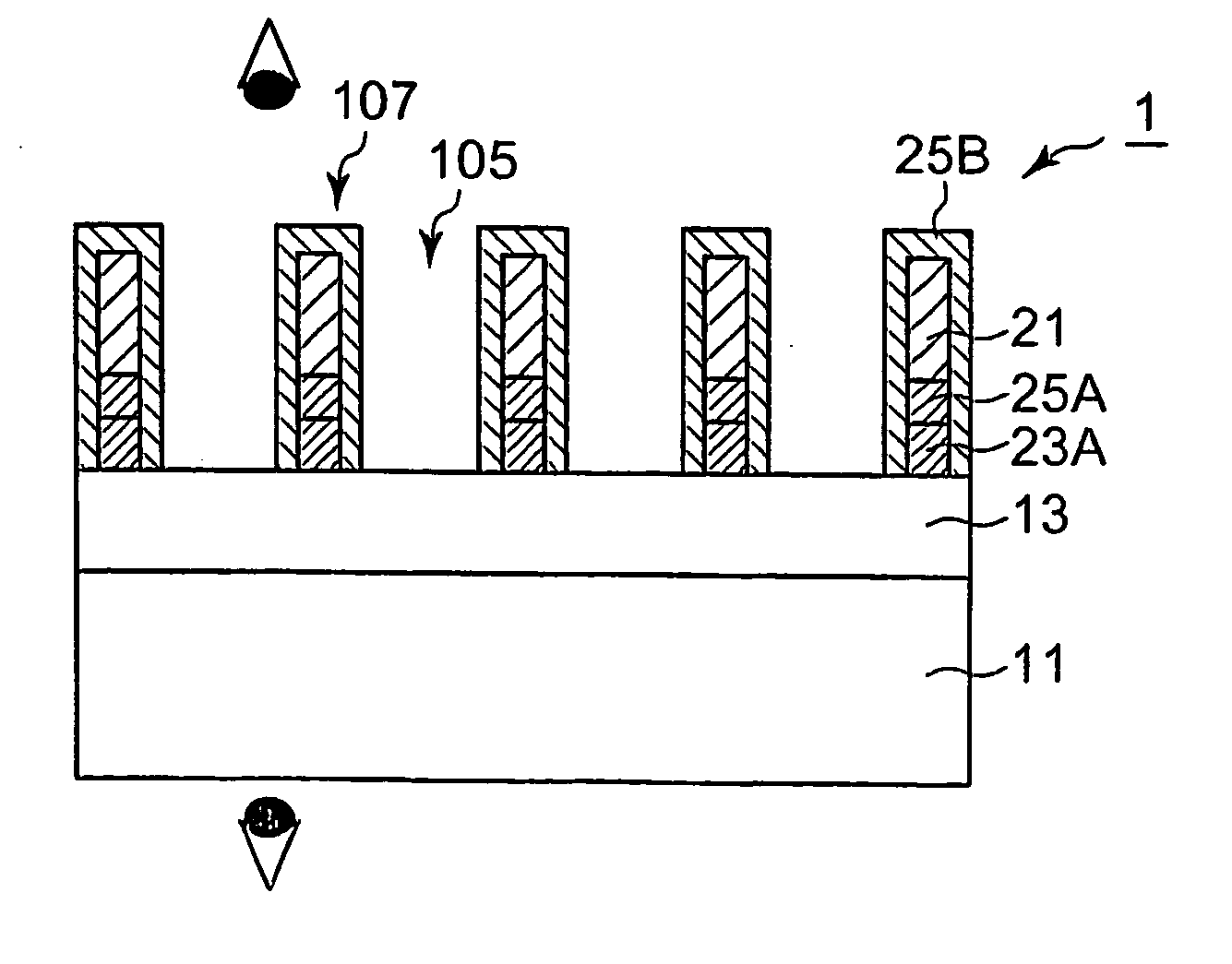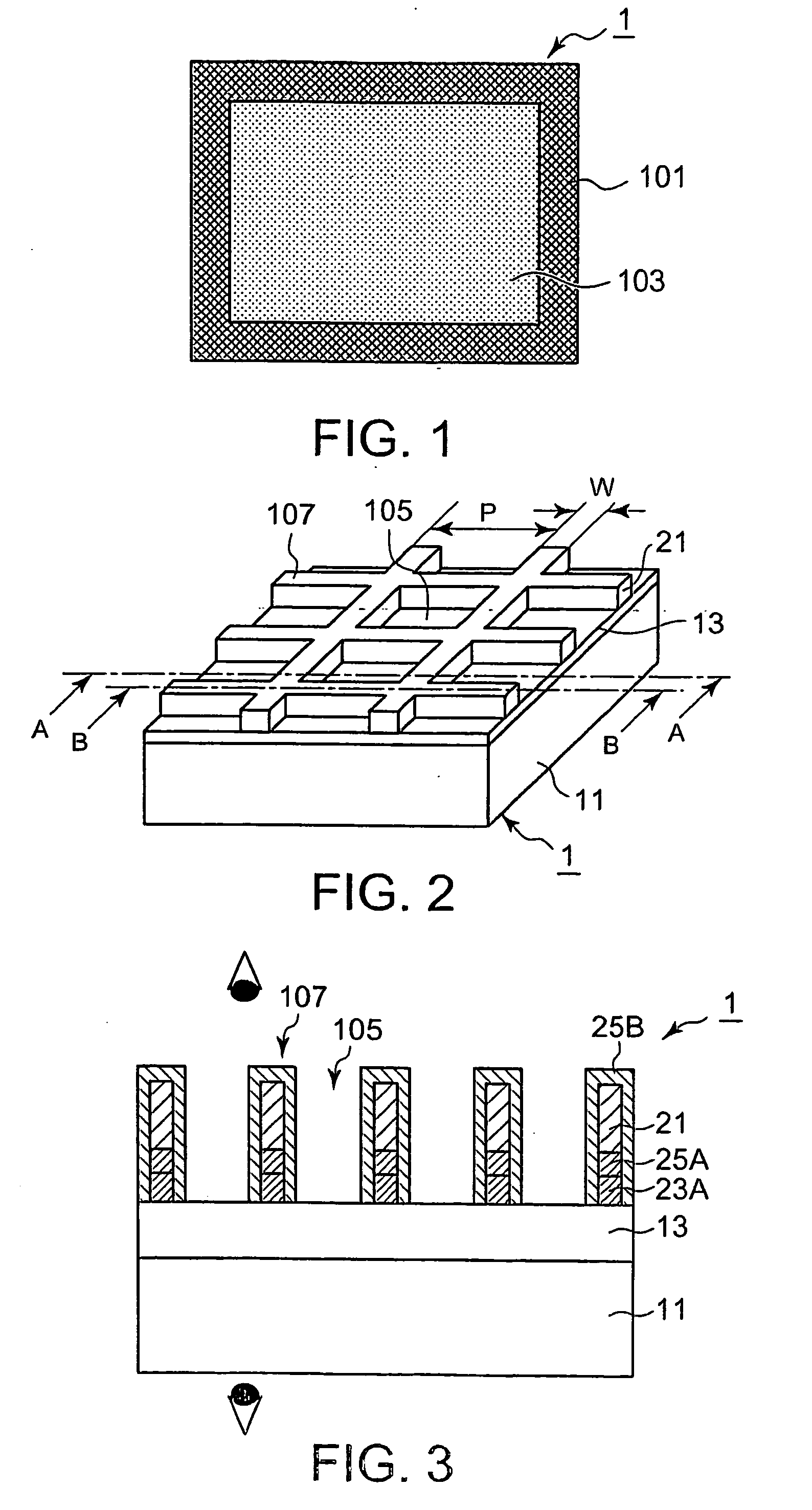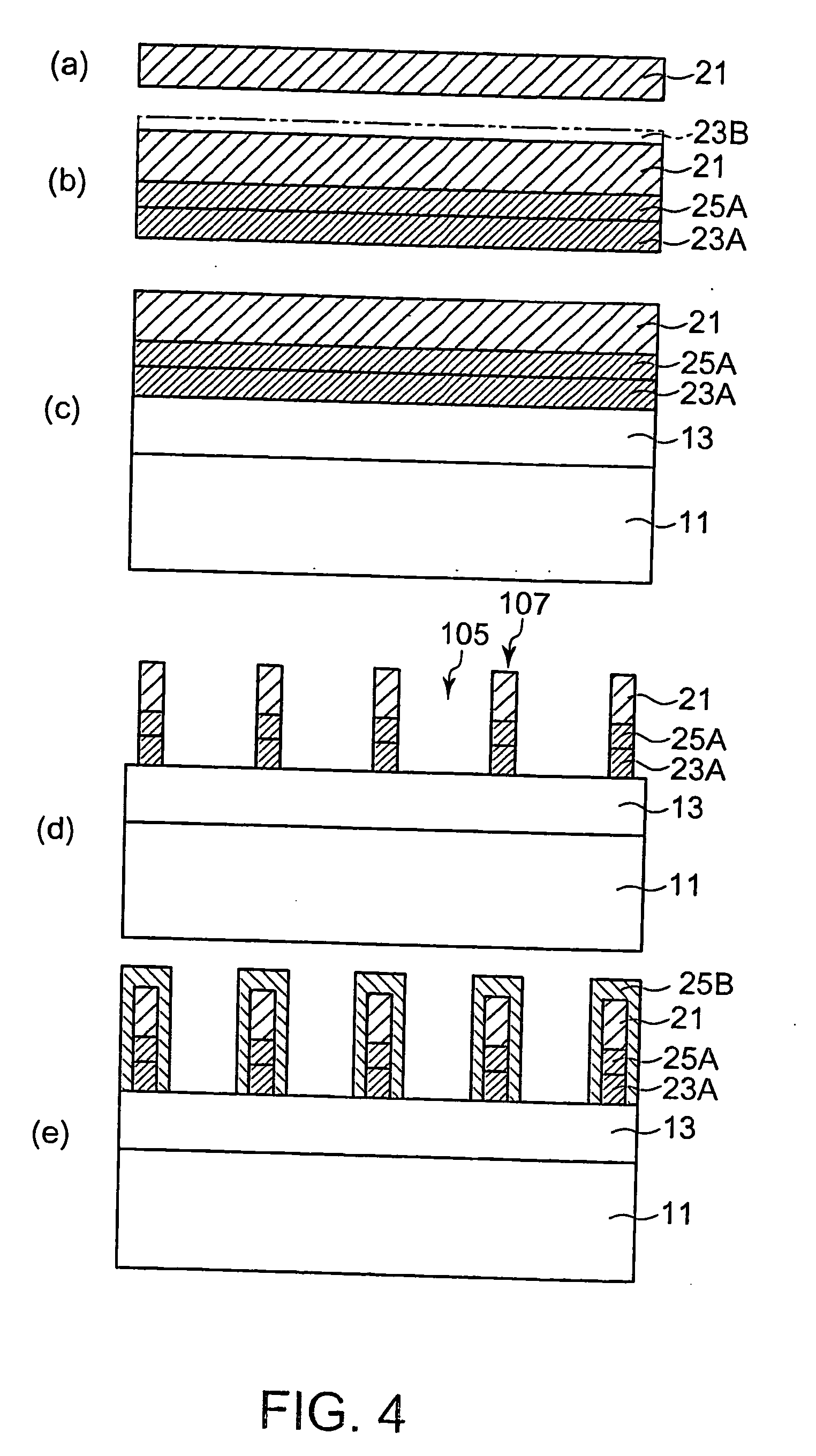Electromagnetic wave shielding filter and process for producing the same
a technology electromagnetic shielding filter, which is applied in the direction of superimposed coating process, cathode ray tube/electron beam tube, coating, etc., can solve the problem of electromagnetic shielding filter having insufficient electromagnetic shielding ability, white dispersed image, low invisibility of the mesh, etc. problem, to achieve the effect of good adhesion, small number of steps, and short tim
- Summary
- Abstract
- Description
- Claims
- Application Information
AI Technical Summary
Benefits of technology
Problems solved by technology
Method used
Image
Examples
example 1
[0093] Electrolytic copper foil with a thickness of 10 μm was used as the metal layer 21. Copper-cobalt alloy particles (mean particle diameter: 0.3 μm). were cathodically electrodeposited on one surface of the metal layer 21, thereby forming a first blackening layer 25A. After effecting zinc plating, conventional chromate treatment was conducted by dipping to make both surfaces of the metal layer 21 anticorrosive. The anticorrosive layer present on the first blackening layer 25A surface is herein referred to as an anticorrosive layer 23A, and the anticorrosive layer present on the metal layer surface, a second anticorrosive layer 23B.
[0094] The anticorrosive layer 23A on the side of the first blackening layer 25A and a transparent substrate 11 made of a PET film A4300 (trademark of a polyethylene terephthalate film, manufactured by Toyobo Co., Ltd., Japan) with a thickness of 100 μm were laminated with an adhesive layer 13 of a two-part curing urethane adhesive, and this laminate ...
example 2
[0098] An electromagnetic wave shielding filter 1 was obtained in the same manner as in Example 1, except that electroplating was conducted by immersing the laminate in an aqueous solution mixture of an aqueous ammonium solution of nickel sulfate, an aqueous solution of tin sulfate and an aqueous solution of sodium thiosulfate, serving as a plating bath for blackening treatment, thereby depositing a nickel-tin alloy as the second blackening layer 25B.
example 3
[0099] An electromagnetic wave shielding filter 1 was obtained in the same manner as in Example 1, except that electroplating was conducted by immersing the laminate in an aqueous solution mixture of an aqueous ammonium solution of nickel sulfate, an aqueous solution of tin sulfate, an aqueous solution of copper sulfate and an aqueous solution of sodium thiosulfate, serving as a plating bath for blackening treatment, thereby depositing a nickel-tin-copper alloy as the second blackening layer 25B.
PUM
| Property | Measurement | Unit |
|---|---|---|
| frequency | aaaaa | aaaaa |
| thickness | aaaaa | aaaaa |
| thickness | aaaaa | aaaaa |
Abstract
Description
Claims
Application Information
 Login to View More
Login to View More - R&D
- Intellectual Property
- Life Sciences
- Materials
- Tech Scout
- Unparalleled Data Quality
- Higher Quality Content
- 60% Fewer Hallucinations
Browse by: Latest US Patents, China's latest patents, Technical Efficacy Thesaurus, Application Domain, Technology Topic, Popular Technical Reports.
© 2025 PatSnap. All rights reserved.Legal|Privacy policy|Modern Slavery Act Transparency Statement|Sitemap|About US| Contact US: help@patsnap.com



